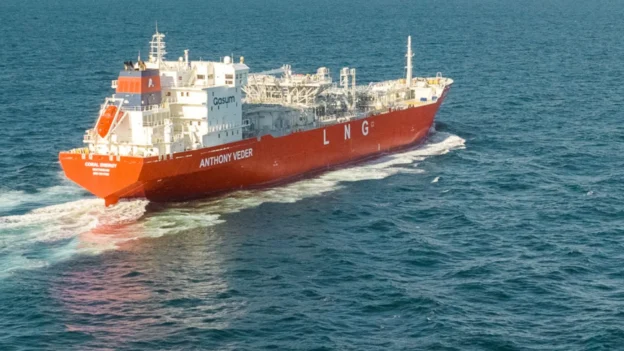Gasum, a leading supplier of bio-LNG in Europe, has begun publishing the daily price of its FuelEU Maritime compliance units on its website, an initiative that seeks to provide visibility and confidence in an increasingly demanding regulated market.
How does the daily price of FuelEU credits help shipping companies?
The published figure represents Gasum’s actual sales price per ton of CO2 emitted, applicable to volumes of 500 tons and above. This daily publication does not correspond to an estimated rate, but to a concrete commercial reference.
With this, shipping companies can more accurately assess compliance-related costs in a regulatory environment that went into effect on January 1, 2025.
Gasum does not merely intermediate in the market, but directly supports its pooling services. The company
Bio-LNG as a compliance vector
Much of the value offered by Gasum lies in its fleet fueled by bio-LNG produced from waste. This renewable fuel can reduce emissions by up to 90% compared to conventional marine diesel. Depending on the raw materials used, even negative emissions can be generated.
The FuelEU Maritime regulations imposes progressive reductions in the intensity of emissions emissions intensity. By 2025, the target is 2% compared to the 2020 baseline. This target will increase to 6% in 2030 and reach 80% by 2050.
The first mandatory returns are due by January 31, 2026, covering the full period of the previous year.
Trust based on open data
Transparent pricing is essential to strengthen the confidence of our customers.
Says Jacob Granqvist, vice president of Gasum’s marine division.
This open policy seeks to standardize a still incipient market, contributing to an effective energy transition in European shipping.
Source and photo: Gasum

